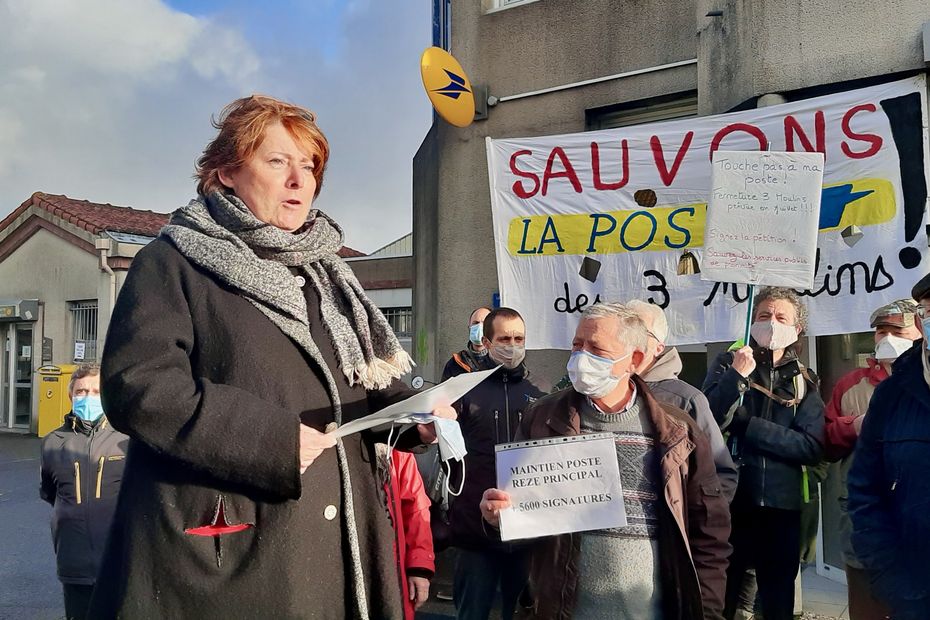If Fran Lebowitz did not exist, it would have to be invented. Queen of digression, virtuoso of acerbic humor, champion of iconoclastic repartee, the hilarious “Fran” has an opinion on everything, all the time, and the most remarkable is that it is often right. Listen to him speak throughout “If it was a city…”, the Netflix documentary mini-series devoted to him by Martin Scorsese, his long-time friend and absolute fan who chokes on laughter at each of his interventions, is a rare pleasure. Ultimately, contemplating this 70-year-old woman with a stern face walking the streets of New York like a statue of the Commander would be almost enough for our happiness. She is so whole, free, upright in her cowboy boots, narcissistic and without qualms that next to most of the passers-by seem pale copies of themselves.
But who is the iconic Fran Lebowitz? In France, we hardly discover it. In the United States, this New York Jewish intellectual, culture columnist, author of three books including a children’s book, lesbian, democrat, humorist and actress in her spare time has been a cult since the 1970s. This angry energy misanthrope, who admits to being relieved that America has turned the page on Trump and is not shy about calling the Trumpists “leftovers”, divides as much as it fascinates. “Some hate me, others love me, but I don’t know them and I don’t care whether people agree with me or not,” she explains over the phone, tone to tone. both precise, courteous and grumpy which belongs only to her. My deep feeling is that if you don’t agree with me, you are wrong. »In her deep smoker’s voice, she kindly urges us to speak louder, the connection with New York is bad: normal, Fran Lebowitz has no laptop or computer, never sends e-mails or types to typewriter, and makes his phone calls to a stationary. “I asked friends if they had Netflix. It’s like asking them if they have electricity. “
Escape the fate of a model wife
A third Dorothy Parker, a third Larry David, a third Grumpy Smurf, the one who declares “success has not given me a big head, I have always been unbearable”, offers us in “If it was a city … »A fireworks display of incisive tirades:« Whatever the initial emotion – despair, fear, sadness – with me everything turns into anger. And above all, I love to speak in public and to be asked my opinion. So this strong spirit, to great literary erudition, gives it to their heart’s content. Everything goes there. The “artist” pastry chefs: “If it’s eaten, it’s not art, it’s a snack! “The auctions which reach dizzying sums:” We live in a world where we applaud the price, not Picasso. “Guilty pleasures:” I have no guilty pleasures because pleasure has never made me feel guilty. Even the title of the documentary, “Pretend It’s a City” in English, is an exact transcription of the cry of exasperation uttered for fifteen years at the address of the tourist bunches invading the Big Apple. “People standing in the middle of the street blocking traffic because they are chatting or taking selfies. I shouted to them: “Move on! Act as if it’s a city, not your living room, ”says the one who likes to talk about herself in the third person.
Incarnation of the dirty, dangerous and ill-famed New York of the 1970s, that of Andy Warhol, the New York Dolls and Studio 54, Fran Lebowitz was nevertheless born far from Manhattan, in the neat and suburban suburb of Morristown, in New York. Jersey. Her father, Harold, runs a furniture store. Her mother, Ruth, who doesn’t work, is a former jitterbug dance champion – “She danced better than Ginger Rogers”. Married in 1948, they gave birth to two daughters, Fran, in 1950, and Ellen, in 1954. From an early age, the impertinent Fran showed a certain appetite on the one hand for sweets (“I had a cavity every tooth ”), on the other hand for reading (she is often punished because she reads instead of doing her homework). A happy childhood, even if she only dreams, deep down, of escaping this stifling environment, of living a different destiny than that of a model wife, that her parents, following the social scheme of the 1950s, imagine for their daughter.
At the age of 7, this caustic spirit is already making her revolution: she no longer believes in God and becomes an atheist. “I realized that it was all just one big fairy tale,” she explains. Divine revenge? Her eternally sullen air which makes her glory today earned her to be expelled, at the age of 17, from the high school of the Episcopalian Church where she continued her education. “It wouldn’t happen today, but the headmaster of the school had a bad grip on me and he fired me. At the time, parents did not discuss this kind of decision and sided with this adult’s opinion. For me, it was catastrophic to be fired, a real earthquake. And my parents never forgave me. Persuaded to end up in the gutter after this sentence, the young Fran breaks with studies and joins New York at 18 years old. To earn a living, she is alternately a taxi driver, a cleaning lady, a door-to-door salesperson for belts or an editor of porn novels (“My nickname was the name of the principal who kicked me out of school, ‘one of my finest feats of arms’).
At 20, the one who has always dreamed of becoming a writer and poet publishes columns in an underground magazine founded by the wife of jazz musician Charlie Mingus, frequents him, publishes a first collection of columns, and lands an appointment. with the editor-in-chief of “Interview”, the magazine launched by Andy Warhol. “The first time I went to ‘Interview’, I took the elevator,” she says. And on my way out, I came across a metal door with a sign taped to it that said, “Knock and announce yourself.” So – it was some time after Andy Warhol got shot – I hit and someone said, “Who is this?” I replied “Valerie Solanas” [la féministe qui lui avait tiré dessus, ndlr] and Warhol opened. “Relations between the artist and the journalist will always remain more or less strained -” He didn’t love me, and I didn’t love him. I found that a lot of young people were dropping like flies in his Factory and that that suited his legend well ”- but Fran Lebowitz quickly made a name for himself with his humorous cinema chronicle currying the worst films of the month. A privileged witness to an era, always in the right place at the right time, she crosses paths with the bohemian All-New York of artists, musicians and intellectuals, makes lifelong friends, like the writer Toni Morrison. And gained notoriety thanks to his stripping outspokenness and absolutely filterless.



